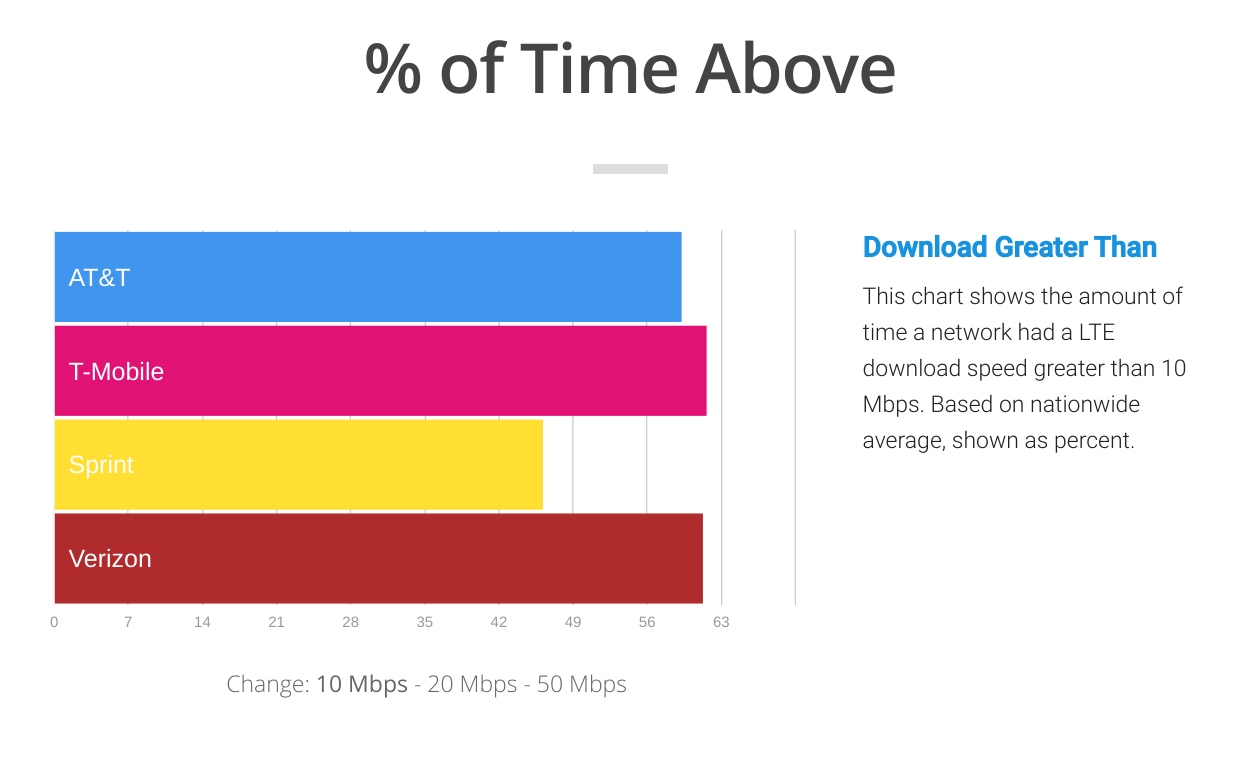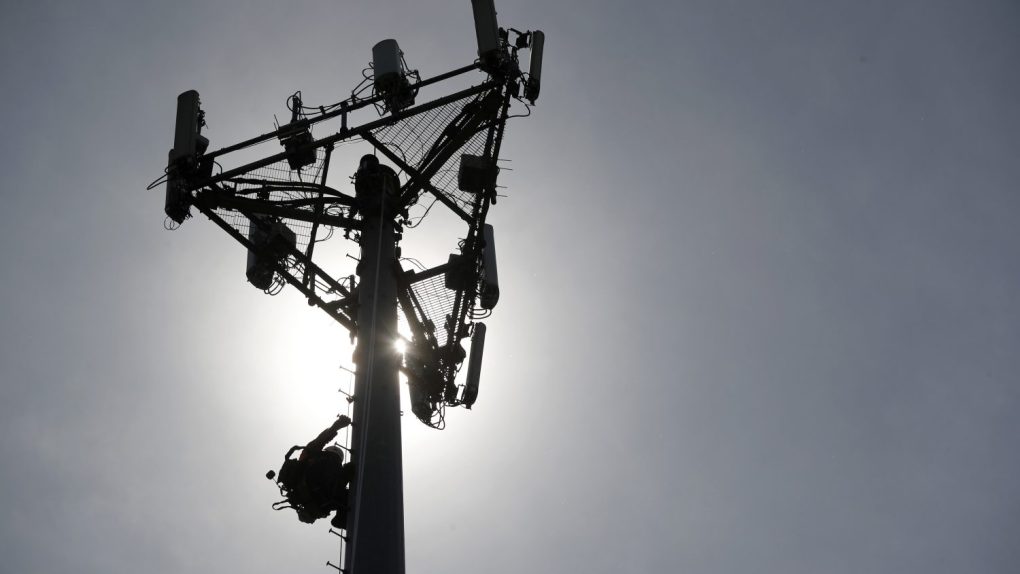For the last decade, the wisdom of the ancients has held that there are two types of wireless network in the US: cheap and slow, or expensive and good. T-Mobile and Sprint were cheap, and AT&T and Verizon were fast.
But the last two years has seen a complete upset in the way networks work. T-Mobile became good, Verizon became cheap, and AT&T started bribing people with cheap cable. This week, a new study has come out confirming the new world order, and it has T-Mobile and Verizon on top.
The data comes from SpeedSmart, a company that uses crowdsourced speedtest data from an app to analyze network speeds in different cities. The May 2017 data paints a clear picture of domination by Verizon and T-Mobile. “In our top 40 cities list, Verizon and T-Mobile are the fastest or second fastest network 52 times combined out of a possible 80. The two are dominating in network performance with many cities seeing over 30 Mbps average download speed.”
To put that in perspective, the average download speed on 4G nationwide is about 15Mbps, so Verizon and T-Mobile and handily outperforming the average in most big cities.

Just outside of average download speed, T-Mobile and Verizon are also doing a good job. Another useful metric is the percentage of time those networks show a download speed greater than 10Mbps, as it’s a decent indication of how often users have a fast mobile internet connection. As you can see from the graph, T-Mobile and Verizon are tied at 61%, with AT&T trailing not far behind. Sprint is at a woeful 46%, by comparison.
It’s worth mentioning that crowdsourced speed data like this is just one way of measuring network quality, and it entirely omits any fair measure of coverage. Verizon customers are still far more likely to get a good signal indoor or in rural areas compared to T-Mobile, as it uses lower-band spectrum that travels further and penetrates buildings better. Crowdsourced speed testing like this is going to reflect coverage in big cities much more heavily, so it’s not a good way for people living in rural areas (or frequent roadtrippers) to make a choice of network.










